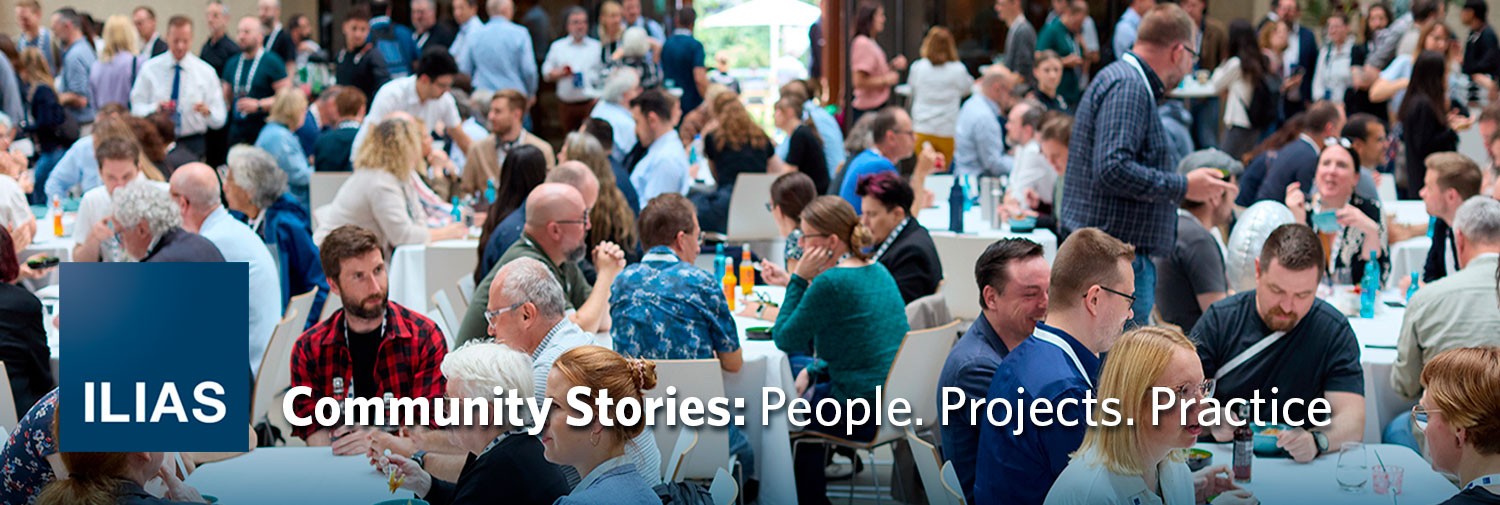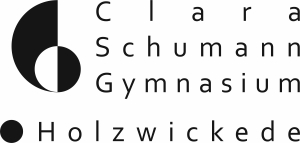International ILIAS Blog
Community Stories: School and ILIAS? "That's certainly doable!"


More and more schools are using digital learning platforms such as ILIAS. They became increasingly important during the Covid-19 pandemic. In many places it is now difficult to imagine doing without them. At the Clara-Schumann-Gymasium (CSG), a grammar school in Holzwickede, Germany, ILIAS has been an integral part of everyday school life for years now. Jörg Meyer is a teacher, sixth form coordinator, and the person responsible for digitalisation at the school. He has kindly agreed to answer a few questions for our blog and to give us an idea of how ILIAS is used in a school environment, and what advantages it offers teachers and pupils.
Alina:
Jörg, you are the sixth form coordinator and teach chemistry and protestant (Lutheran) religious education at your school. You are also play a significant role in digital development at the Clara-Schumann-Gymnasium. That sounds like a whole lot of extremely valuable work.
You have been using ILIAS in your chemistry lessons since 2010. You must know the platform really well by now. It is therefore no surprise that you have been closely involved in the introduction and expansion of the learning management system at the CSG. The CSG has around 680 pupils and has music as a special focus. Can you tell us a little more about this profile?
Jörg:
Yes, an important feature of our school is its focus on music. We offer talented pupils the opportunity to receive individual support via a so-called revolving door model. This means that they are allowed to leave regular lessons for certain periods of time in order to intensively devote themselves to their musical development. Additionally, we also have a learning workshop in which we provide targeted support for both inclusive and gifted pupils.
Alina:
Starting in which form/year do pupils in your school start using ILIAS?
Jörg:
Pupils start using ILIAS in year 5 in computer science. It is additionally used as the school information system. From year 9 onwards, pupils use ILIAS to organise various groups and topics, for distance learning and more
Alina:
You mentioned in advance that there are both pupil and teacher instances of ILIAS at your school. That sounds like two separate ILIAS systems. Or do you work with permissions?
Jörg:
It is a single ILIAS installation with two separate areas, one for teaching staff and one for pupils. Access rights are clearly regulated and each group sees exactly the content that is intended for them.
Alina:
It is great that ILIAS's permissions and roles system allows so many options. When did you start using ILIAS as a learning management system? And what led you to expand your teaching digitally?
Jörg:
We have been using ILIAS since 2016 for internal communication and departmental work. When the Covid pandemic hit, we rolled out the software for the whole school to enable distance learning/teaching. We tried to use BigBlueButton in ILIAS for video conferences. However, due to capacity bottlenecks on our school server, we needed to use a different provider.
Alina:
I think that many schools (and of course everyone else) were faced with huge challenges during the pandemic. How did the introduction of ILIAS go for you? Was there any resistance to begin with or other challenges?
Jörg:
The rollout during the pandemic was a lot of work. Despite support, I was responsible for many tasks myself and was also the problem solver for colleagues.
Our server has some capacity bottlenecks and for that reason ILIAS wasn't very popular among the pupils. Microsoft 365 and Teams were so much easier... Data protection plays an important role in our school though, so we actively decided to use an open-source solution. After all, they can get to know the Microsoft products in class using their A3 access.
Nevertheless, for practical reasons we also opted for student and teacher iPads, as this was the easiest for school organisation.
Alina:
So, there are areas in your ILIAS installation, to which only teachers have access. Which process do you organise using ILIAS? And what else does your teachers-only area have to offer?
Jörg:
Lots! For example, the organisation of departmental work, school inclusion and individual support are carried out via the platform, as well as the booking of rooms and media. We have also created a lexicon for new members of staff and exchange cross-curricular material.
Particularly helpful for us is that we use the Exercise Object in ILIAS to allow pupils to make their sixth-form course choices. This means that the pupil data is immediately digitally processed.
Alina:
And what do you personally like to use most in the teacher area?
Jörg:
The booking pool for iPads and the cover-hours folder, in which colleagues who are ill can put materials for their lessons that need covering.
Additionally I like to use the question pool for chemistry. That is a collection of problems and tasks which can be used to create competence checks (i.e. ILIAS tests).
Alina:
Oh, that's really great that you can exchange ideas and materials which each other like that. What about the area for pupils? Do the pupils also use ILIAS for organisation purposes of their own accord?
Jörg:
Yes, especially from year 9 onwards, when they start to organise themselves independently more and more. Groups such as the media scouts, the school medical service or the student representatives use ILIAS for their work. The pupils generally have no problem using ILIAS.
Lesson materials get put as photo or pdf files in the course folder that is normally structured according to the purpose of the lesson. Pupils who missed the lesson can then access the material. Exercises that have to be handed in by a certain date for project work or homework are also used. This is more the case in the sixth form than in the lower years.
In addition to that, revision/study materials for pupils to independently prepare for their Abitur [roughly equivalent to A-Levels, baccalauréat, etc.] and learning-success tests are made available there.
Alina:
How do you ensure that all pupils have access to ILIAS. Do they all have a laptop or something similar?
Jörg:
Yes - from year 9 onwards (in the future from year 8) all pupils get a free device - an iPad - for school work. That way we ensure that they can all work in a manner that conforms to data protection laws. iPad cases are used in lesson for the years 5 to 7.
Alina:
It's great that you able to do that! That is probably not possible at all schools for financial reasons. Has the introduction of ILIAS had a positive effect on the pupils' learning and their media competence?
Jörg:
Definitely. ILIAS really saved us during the Covid pandemic. Using ILIAS, we didn't need to use any extra tools like Logineo Datensafe, as our data stays with us.
What we still need to change are the graphic options that ILIAS offers - we haven't got around to that yet.
Using ILIAS, pupils learn that there is something other than WhatsApp and TikTok. They discover that ILIAS, a piece of open-source, offers an alternative to Microsoft products, especially in today's world in which we pay with our data.
Really supporting the individual needs of each pupil is only possible with an LMS that enables genuine self-directed learning. How else can pupils with differentiated learning goals (keyword: inclusion), pupils with no knowledge of German, regular pupils and gifted pupils who have skipped two years be taught appropriately in one class?
Alina:
That sounds like a wonderful advertisement for learning management systems in schools. What tips do you have for other schools that want to start using an LMS like ILIAS?
Jörg:
In [the German state of] North Rhine-Westphalia, schools receive an official recommendation to use the state-wide LMS called Logineo-NRW, which is based on Moodle. This way, according to the state, schools can guarantee that they are working in accordance with data-protection regulations. However, if you compare Logineo to ILIAS, then it is like comparing a compact car to a petrol tanker. So far it is not possible to edit documents in Logineo, although this should change in the future. What I also miss in Logineo are good functions in the 'Test' tool. These need to be purchased from an external source.
Some schools also use iServ, in which these test tools are, however, also missing.
According to the latest legislation, schools in NRW are officially required to use specific learning management systems. This means that schools are not really free to choose. As we are located in a small municipality, we have been able to effectively express what we actually want.
I recommend that schools that are thinking about ILIAS get in touch with other schools that are already using ILIAS. That way they can find out about the advantages and disadvantages from people with first hand experience.
Alina:
Dear Jörg, thank you so much for having given us this fascinating look into an ILIAS usage scenario that is, for me at any rate, totally new. I hope that lots more schools get to profit from ILIAS in the future and are so committed to getting the best for their pupils as you are at the Clara-Schumann-Gymnasium.
And finally, for all those who are interested, there is a special interest group (SIG) for schools here on our docu.ilias.